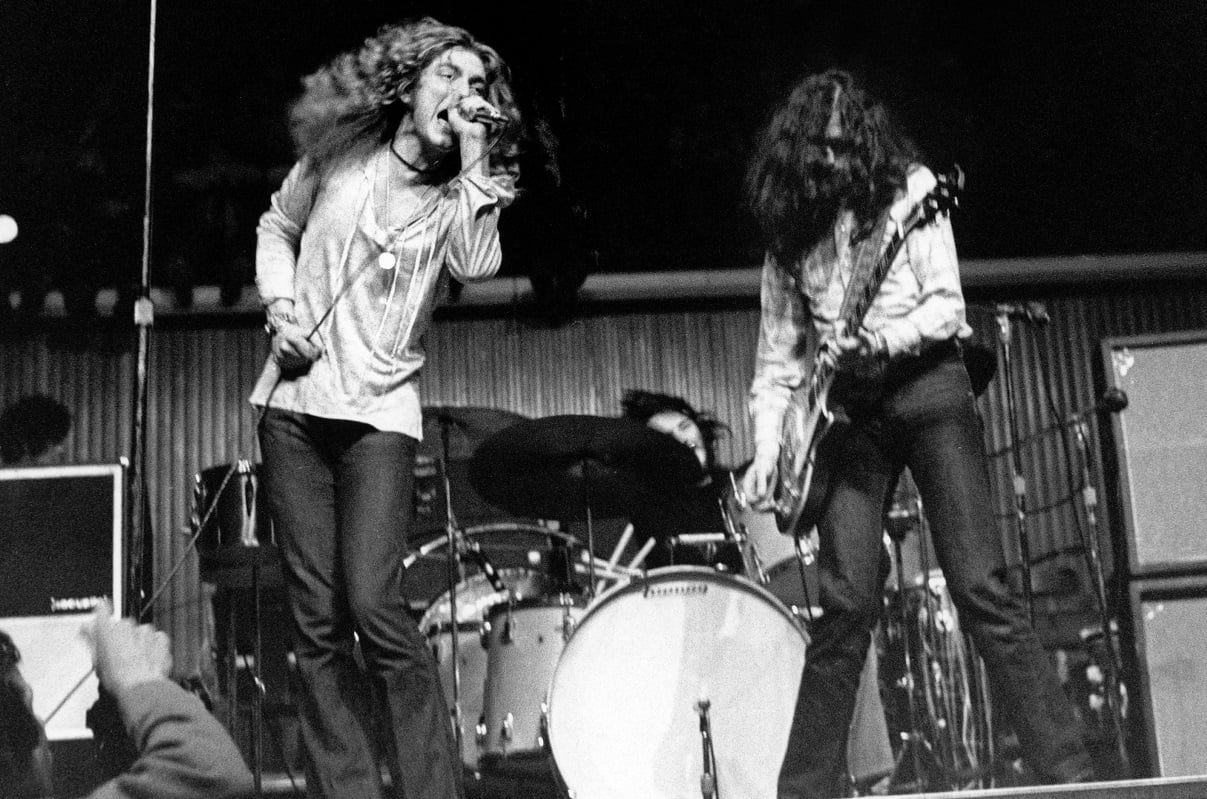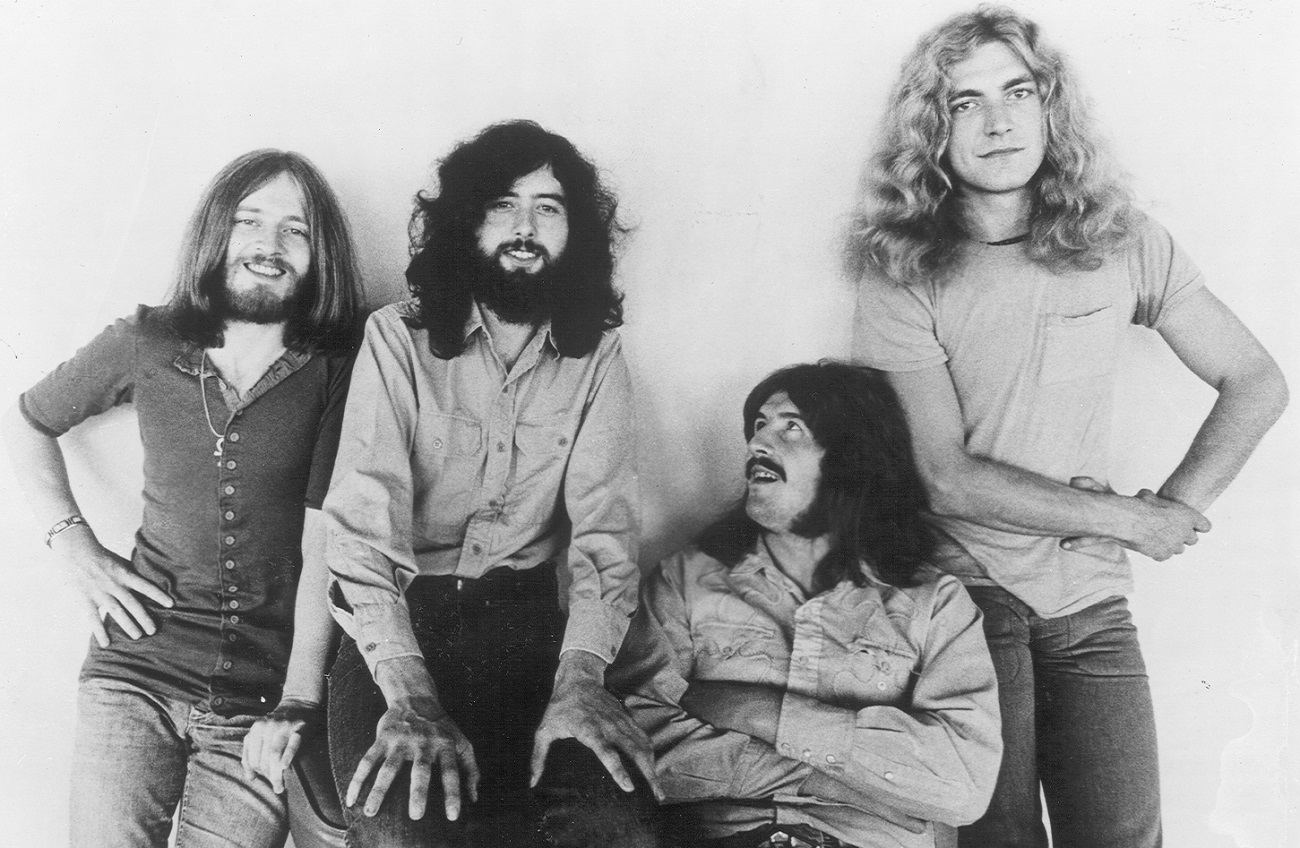Why Led Zeppelin’s ‘Baby Come On Home’ Didn’t Make It Onto the 1st Zep Album
The first Led Zeppelin album hits everybody different ways. For some, it’s the explosion of the opening track, “Good Times Bad Times” that stands out. Others might point to the band’s way with dynamics on track 2, “Babe I’m Gonna Leave You.”
But you can’t get far through that 1969 debut without remarking on the talent of each band member. John Bonham’s kick-drum work speaks for itself on the opener, as does Jimmy Page’s guitar and the howl of Robert Plant. And John Paul Jones’ work on bass and keys is right there with them.
By the end, you better be ready for the assault of “How Many More Times.” Could the album have used another ballad, though? While “Your Time Is Gonna Come” works as a fine showcase for Jones, the band might have used the soulful “Baby Come On Home” to kick off side 2.
Instead, that track went into the vaults and stayed there until 1993, when the Led Zeppelin boxed sets started rolling off the presses. Looking back, Page said it was simply a matter of preferring other tracks to it.
Led Zeppelin’s ‘Baby Come on Home’ featured a powerhouse Robert Plant vocal and other solid performances

At first listen, “Baby Come on Home” sounds like an unusual entry in the Zep catalogue. During the sessions for Led Zeppelin, it had the alternate title of “Tribute to Bert Berns,” and it was an adaptation of a track by Berns, who wrote classics such as “Hang On Sloopy” and “Piece of My Heart.”
It kicks off at a slow tempo with Jones on piano and Plant belting in the soul style. Bonham is especially active in the opening verse, with his fills coming one after the other. When it’s time for the chorus, Plant gets (of all things) backing vocalists (possibly Page and Jones) behind him.
At the end of the chorus, Jones’ organ part kicks into gear, adding another dimension to the track. But it’s Plant’s vocal that dominates throughout. The Zep singer, who’d only recently turned 20, could summon otherworldly power at this point in his career.
Plant doesn’t hold back at all on “Baby Come on Home,” which runs over four minutes with its conventional structure and extended outro. When the public finally heard it in ’93, the response was positive: It hit No. 4 on the Billboard Mainstream Rock chart.
Jimmy Page didn’t like the ‘Baby Come On Home’ backing vocals and thought the other tracks were better

If you wanted to get into the sequencing of Led Zeppelin, you could argue that “Baby Come On Home” didn’t fit into the program of the LP. But the track never really got that far. The version that got released was the first complete take.
“I don’t think we finished it — the backing vocals weren’t very clever,” Page recalled in Brad Tolinski’s Light and Shade: Conversations with Jimmy Page. “And at the time we thought everything else was better. Simple as that, really.”
Coming from the band that didn’t release “St. Tristan’s Sword,” that sounds about right. Page didn’t deny the power of “Baby Come On Home,” though. “Don’t get me wrong: The track is good and Plant’s singing is excellent,” he told Tolinski. “It’s just that we set such high standards for ourselves.”


